Source: Shihan
Today I want to tell a story of incredible inspiration in the field of science - the story of a young gamer who defeated scientists and won the Nobel Prize.
Yes, I've talked before about how graphics cards have sparked a revolution in computing power and incubated the AI industry, but today's story is even more incredible and full of twists and turns.
There was a young man who was hailed as a genius from a young age and loved games. At 4 years old, he showed a keen interest in chess, and by 8 he was winning championships. He used his prize money to buy himself an important gift - a computer - and quickly fell in love with computer games.
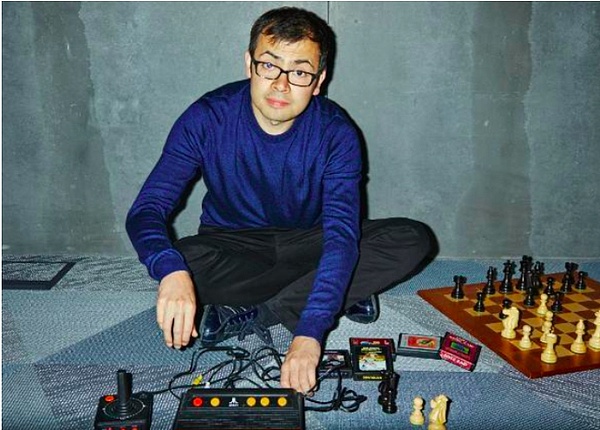
Familiar operations, familiar plot~
At 17, he chose to join a game company and become a game designer.
After all, if he loved games so much, why not try making one himself? He joined the then-famous Bullfrog company.
A year after joining the company, he led the design of a blockbuster game - the famous "Theme Park".
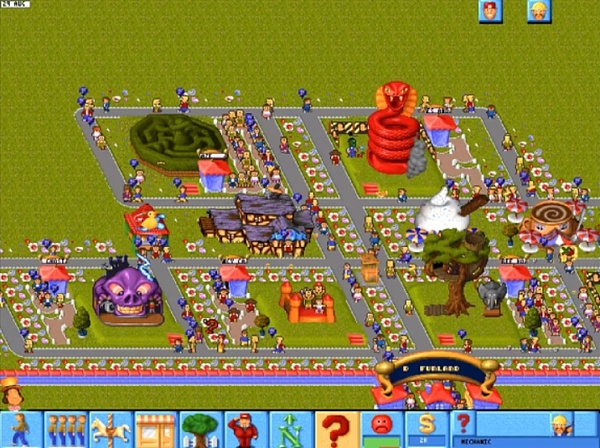
In simple terms, this 1994 game was the progenitor of many theme park and simulation games today, and I even think the Tropico series was influenced by it.
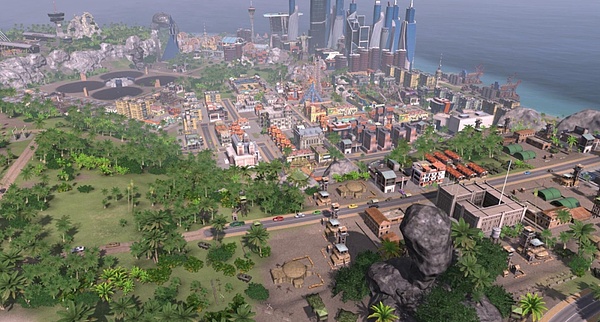
A few years later, he founded his own game company and developed the simulation games "Republic" and "Evil Genius".
Clearly, he was very fond of the simulation game genre.
Civilization 5, launch!
Up to this point, this story seems similar to the past stories of chess prodigies and computer geniuses,
loving games from a young age, having talent in chess and Go, able to self-learn computers, and eventually joining a game company to become a superstar programmer, creating industry-shaking blockbuster products.
But where this young man stands out is just beginning.
After creating blockbuster games, he quickly began to ponder the role of computers in games, and started trying to incorporate AI features into his games.
Few media have mentioned this, but as a veteran gamer, I think it was likely influenced by his previous simulation games.
Because those who often play simulation games can feel that in the late game, with a large number of NPCs, the computer's computing power becomes a clear bottleneck,
In the late game of Civilization 5, the computer often freezes up for a turn,
In Theme Park, Cities: Skylines, Tropico and other simulation games, not only does the graphics lag, but the citizens' commuting routes are also very unreasonable, even if you've built good public transportation and placed the residential and work areas together, they still run around and clog the roads.
Perhaps it was these phenomena that inspired him to think about AI, could these game issues be optimized using AI?
In 2010, he founded a new company with the goal of "solving intelligence problems", and tried to use learning algorithms to master games.
In 2013, they created an algorithm called Deep Q-Network (DQN) that could play computer games at a superhuman level.
Test results showed that DQN became the best player in the game Space Invaders within 30 minutes of playing.
In 2016, the company released a game AI that defeated the original world champion of that game.
-- This AI was called AlphaGo.
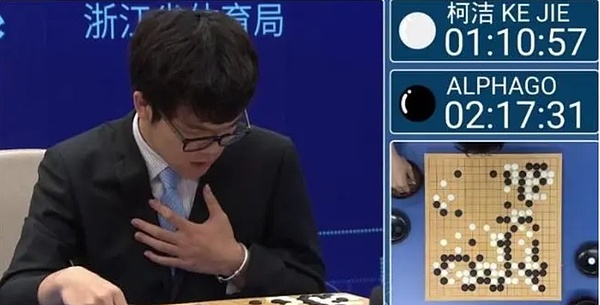
Yes, strictly speaking, you can understand Go as a game, and AlphaGo as a game AI,
It's just that the game of Go is quite special, with an almost infinite number of computational variables, once considered uncrackable, and AlphaGo is much smarter than those simple computers.
Many people are amazed at the wave of AI development in the past two years, often seeing it as a single, sudden occurrence.
But in reality, it's not. The birth of countless electronic games over the years has spawned a huge demand for game AI, with many players hoping to compete against smarter AI or fight alongside smarter NPCs in games, driving programmers to constantly explore AI algorithms.
There has never been a programmer who said, "I'm going to research a smarter AI at all costs, no matter what."
The reality is, if you design a good algorithm, your game will be more fun and you'll make a billion, if his game is smarter, he'll make two billion. It's the weighty rewards that give everyone endless enthusiasm to invest in AI development.
Gunpowder was not designed from the start, there has never been a scientist who said "Today I will invent gunpowder." It didn't exist like that, it was a group of alchemists hoping for immortality, tinkering with this and that every day, until they discovered that sulfur, saltpeter and charcoal mixed together would explode.
Leeuwenhoek didn't set out to discover the microbial world either, he was just a lens grinder, grinding lenses every day, until one day he discovered he could see things the naked eye couldn't when the lenses were polished to perfection.
The protagonist of our story is the same, he started out wanting to make games, then wanted to research smarter games, and finally developed an incredibly intelligent game AI.
Then they started to ponder a question,
Since AI has the ability to self-learn, and can quickly master the rules of Go and electronic games, becoming champion players,
If we treat scientific research in a certain field as a "game", can AI master it as well?
In 2017, at the Wuzhen Go Summit, AlphaGo defeated world Go champion Ke Jie 3:0 in a clean sweep.
In 2018, DeepMind also developed an AI system called AlphaFold that can predict protein structures, trying to use AI for scientific research.
You must think this is far-fetched, letting an AI originally designed for games go research science, that's too far-fetched.
You're not the only one who thinks so, a certain Chinese Academy of Sciences academician, Yan Ning, also thought so.
Yes, it's our old acquaintance, Professor Yan Ning.
So all the encounters in this world are reunions after long separations, and we've run into each other again in an unexpected twist of fate~
Over the years, there have been three main methods for predicting protein structure: using X-ray crystallography on protein crystals, nuclear magnetic resonance spectroscopy, and the expensive cryo-electron microscopy imaging and modeling.
Yan Ning's team is known for their proficiency in the third method, cryo-electron microscopy, able to take five photos in the time it takes others to take one, with much higher efficiency.
DeepMind's idea was, can this highly repetitive work be solved by AI?
If we treat the cryo-electron microscopy imaging and modeling process as a "game", can we try to solve it with AI?
"They didn't want to take pictures, but chose AI: since proteins are made up of amino acids, if we can summarize the distances and bond angles between every pair of amino acids in known protein structures into a graph, and then let the neural network digest them, the AI can make its own predictions."
The final result is that the efficiency of AI far exceeds human, with a general team efficiency of 1, Yan Ning's team efficiency of 5, and AI at 100,000, and still growing rapidly. Because AI doesn't need rest and will continuously self-improve. Since their breakthrough, over 2 million people from 190 countries have used AlphaFold, and with their help, scientists have not only gained a deeper understanding of antibiotic resistance, but also designed enzymes that can digest plastic.
As for such a disruptive achievement, you can probably guess the story behind it - this technology has won the Nobel Prize. The young man who was a passionate gamer and initially worked as a game designer is this year's Nobel Prize winner in Chemistry, Demis Hassabis.
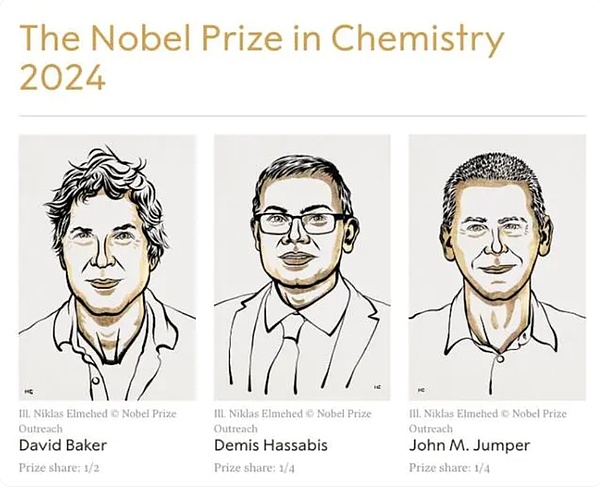
It turns out that the development of the times will fairly sweep away everyone, and when you are amazed by the development of AI, top scientists may also be misled.
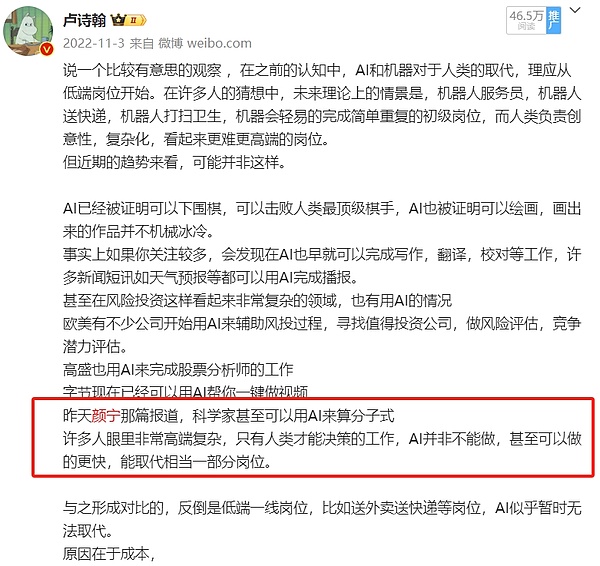
In 2022, when we discuss AI, the impact of AI on Yan Ning and others has been observed by many people. From the comments, although everyone recognizes the development of AI, most believe that it may take some time to replace top scientists. (A few friends have made very forward-looking statements, which are very impressive)
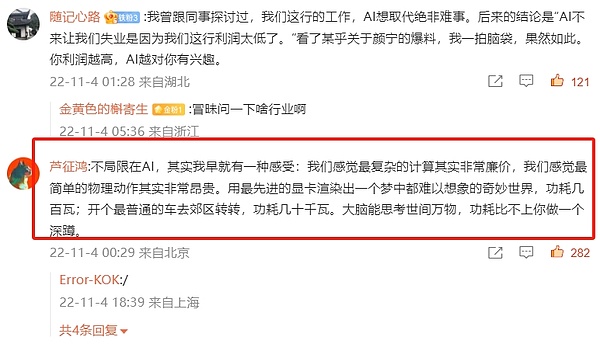
Yan Ning herself may have thought so too, and in 2022 Yan Ning's own conclusion was that the predictive power of AI can only reach the level of 2017.

This plot is exactly the same as the Go industry,
When AlphaGo first came out, everyone thought it was nothing special, it could only defeat the world champion, and humans had a chance to win it back with effort.
But soon everyone realized this view was completely wrong, because human learning has teachers and textbooks, human combat power is actually based on the experience of predecessors, plus the result of years of learning, while AI got into Go in less than a year~Mastered in a year and defeated the Go master, no need to look at it anymore.
In 2022, Yan Ning thought that AI had only reached the level of five years ago, and there was nothing to worry about.
The problem is that AlphaFold was introduced in 2018, and by 2022 it has only been four years, a four-year-old child is about to catch up with you, the top human scientist, and this development speed, you still use common sense to judge, will definitely be completely wrong.
So what does this story tell us?
Is it technological development, AI innovation, life encounters, or should biology be turned into a programmer?
I think the biggest inspiration is in passion.
Looking back, in 2007 Yan Ning was already a professor at Tsinghua University, a doctoral supervisor, and a renowned academic master.
At this time, Demis Hassabis was still a game designer, not to mention an academic master, he couldn't even be considered a member of the academic community.
At this point, if you tell him that you will defeat the academicians and win the Nobel Prize in the future, he won't believe it, he can't even imagine it.
An unknown scientific practitioner winning the Nobel Prize is unbelievable, but at least it can be explained.
How could I, a mere game player, possibly win the Nobel Prize? There's no Nobel Prize for games, is there?
The wonder of the world lies in this.
You may not really love scientific research, it may be for the sake of salary, stability, or the glamorous lights, you do similar work day after day, and deeply feel the difficulty of scientific research.
Although he only did games, he had a heartfelt love for games, and as a result, he delved into it to the extreme, and unexpectedly pointed out the AI technology tree, and turned out to be the key to the new era.
You may say it's just his luck, but if he didn't have an extreme love for games, if he didn't fundamentally think about the way games are played, if he just did some reskinned games for money, would this story have happened? Obviously not.
It is the love and dedication to the things he loves that has helped him break through the fog and find a new world.
Never forget to love what you love.







